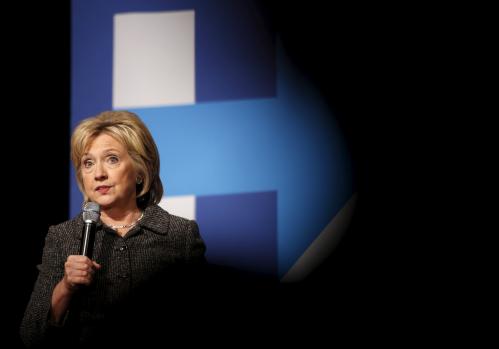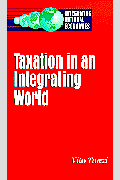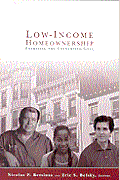House Republicans are moving forward with lame-duck legislation that would accelerate depreciation for business property on a Native American reservation, impose an excise tax to create a black lung liability trust fund, and extend the classification of racehorses as three-year property. No wonder so many Americans are confused about our tax system.
But would public attitudes about taxes change if Americans knew more about tax policy–and if so, how? I conducted an experiment to find out. The good news: in response to certain kinds of information, Republicans and Democrats converge in their views, suggesting that even in the context of enormous partisan polarization, information can change people’s minds. But, as we’ll see, not all information works that way.
First, some background: The information provided in the experiment was about the distribution of taxes by income. My 1,527 survey respondents, a representative national sample, saw one of three simple graphs. A control group saw information on a non-tax subject. One treatment group saw the distribution of the federal income tax:

The other treatment group saw the distribution of all taxes together, federal, state and local:

As you can see, in both tax-related graphs, the tax system looks progressive. The main difference is what the figures suggest about the taxes paid by low-income people. Looking only at the federal income tax, low-income Americans often get more money in refunds than they pay in. However, taking account of all the kinds of taxes people pay, low-income people on average make very substantial tax payments.
After looking at the information, respondents answered a battery of questions about their views on U.S. tax policy. Given what we know about how the two parties talk about taxation, I thought these data were likely to influence how partisan respondents viewed the tax system. In particular, because conservatives often criticize low-income people as non-taxpayers, I thought Republicans would probably care a lot about whether low-income people pay taxes.
And that’s true. Almost a quarter of Republicans in the control group thought low-income people pay too little in taxes, compared to less than 10 percent of Democrats. But Republicans who looked at the distribution of all taxes were 10 percentage points less likely to say low-income people pay too little. In other words, looking at one graph cut the partisan divide in half.
But on other questions, Democrats and Republicans responded to the same information in opposite ways. I asked the survey respondents whether they saw themselves as taxpayers. I expected that the graph focused on the income tax would make low-income respondents less likely to identify as taxpayers; after all, the data suggest they are probably getting more money back from the federal tax code than they are paying in. And for Democrats, my expectation was met; low-income Democrats were less likely to say they were taxpayers after seeing that people in their income range paid what amounts to a negative income tax rate.
But low-income Republicans responded differently. In fact, low-income Republicans become much more likely to assert their status as taxpayers after seeing data suggesting they probably get more from the federal tax system than they pay in. After seeing the data about the distribution of the federal income tax, low-income Republicans were 20 percentage points more likely than low-income Democrats to describe themselves as taxpayers—the nearly exact opposite of how partisans responded when they were not given information about the tax distribution.
Why? Based on my study of the Tea Party, my guess—to be confirmed with additional research—is that Republicans are especially likely to see being a “taxpayer” as an important part of their identity. Contemporary conservative rhetoric rests heavily on the distinction between the “hard-working taxpayers” and the “undeserving takers” who are believed to benefit unfairly from government programs. In America, opposition to welfare programs has been fueled by racism, which shapes public perceptions about both who uses public programs and who deserves to use them. Because receipt of government benefits is so stigmatized, especially among conservatives, Republicans may find it especially hard to accept evidence that they are themselves beneficiaries of “big government.”
The findings build on a growing body of work suggesting that learning more of the facts can change Americans’ minds about tax policy (perhaps especially for low-income Republicans). Unfortunately, in the current political and media environment, it remains highly unlikely many Americans will be presented with those facts.
The Brookings Institution is committed to quality, independence, and impact.
We are supported by a diverse array of funders. In line with our values and policies, each Brookings publication represents the sole views of its author(s).











Commentary
When does better policy information change minds?
December 7, 2018